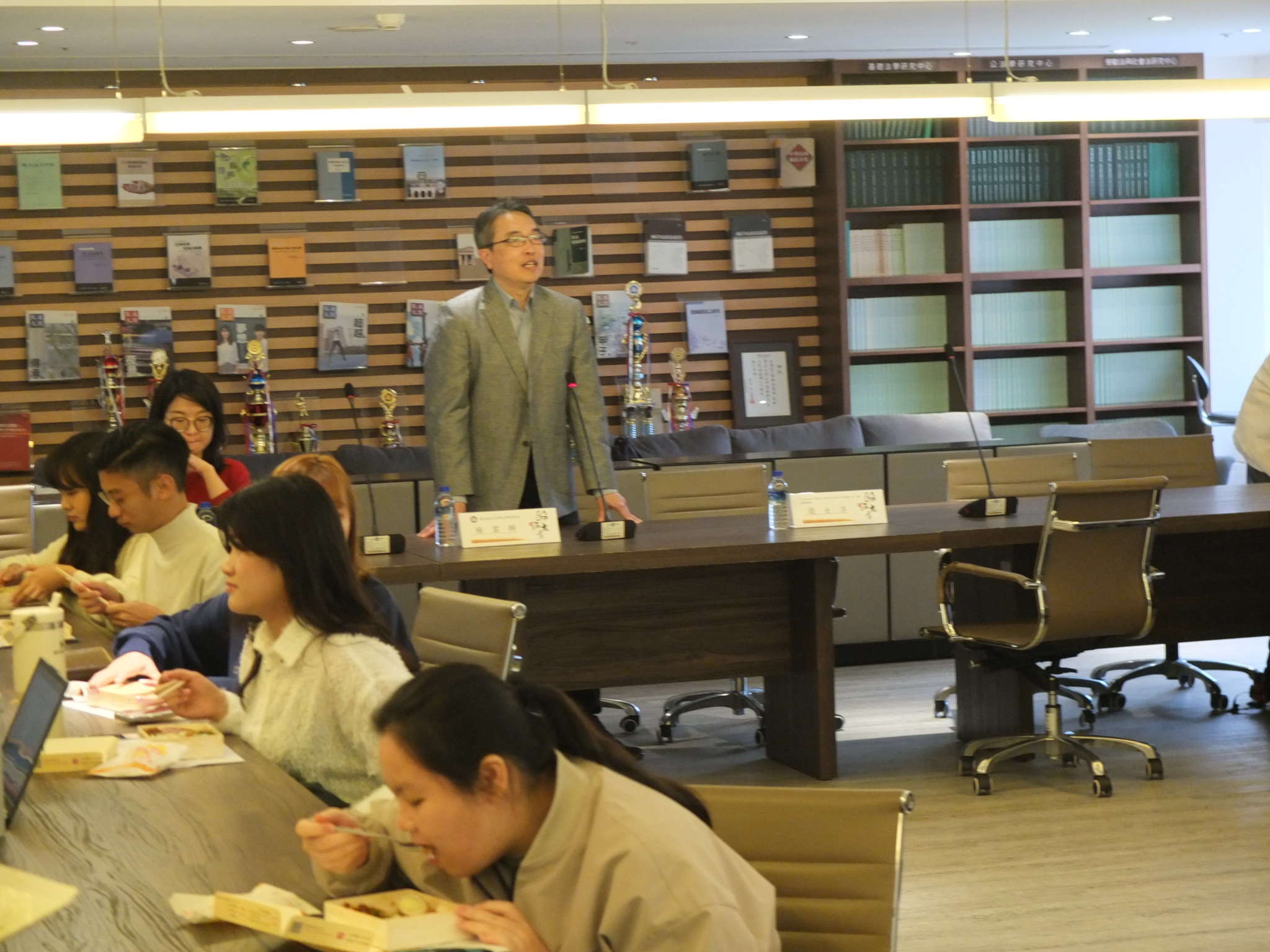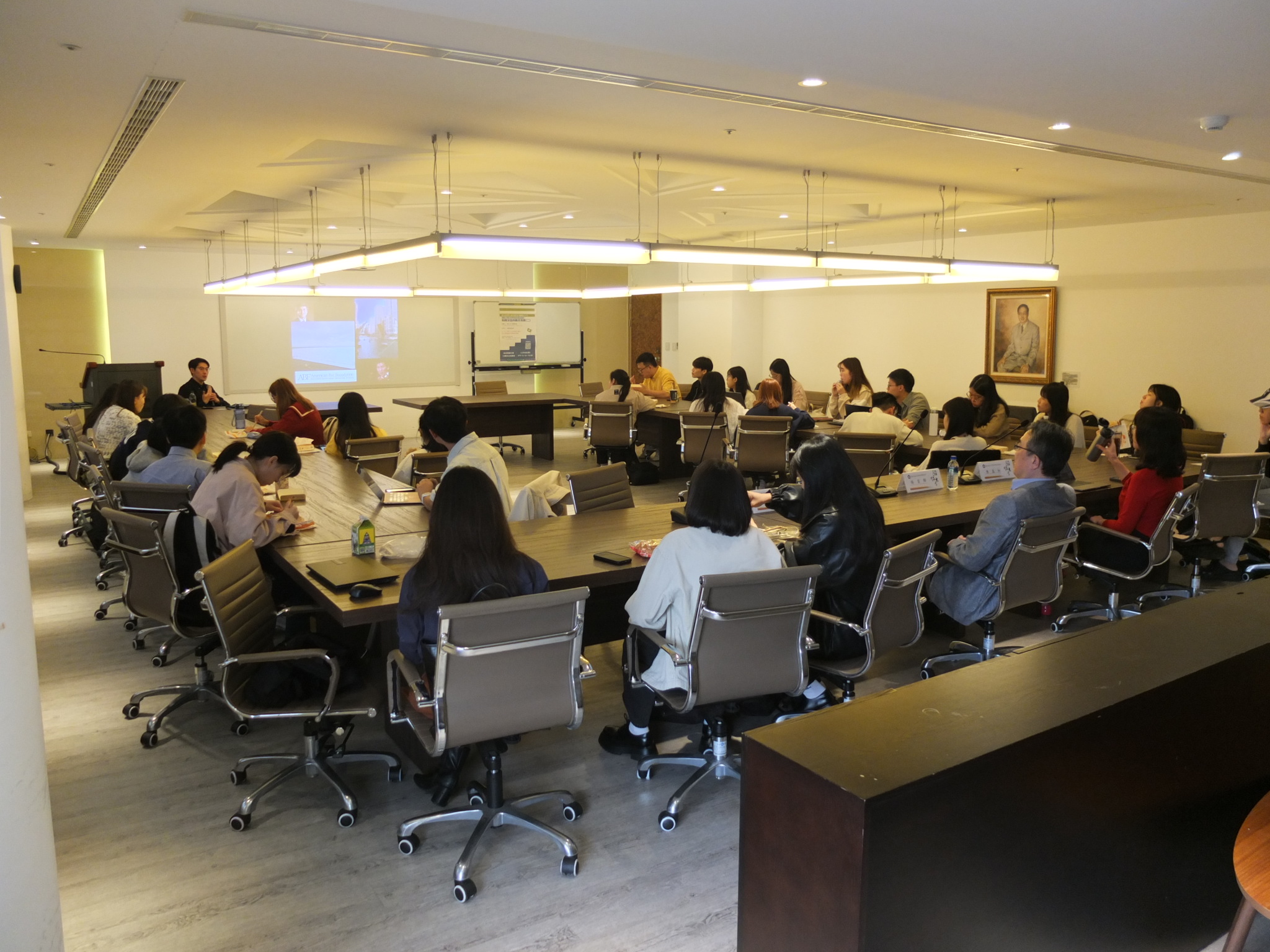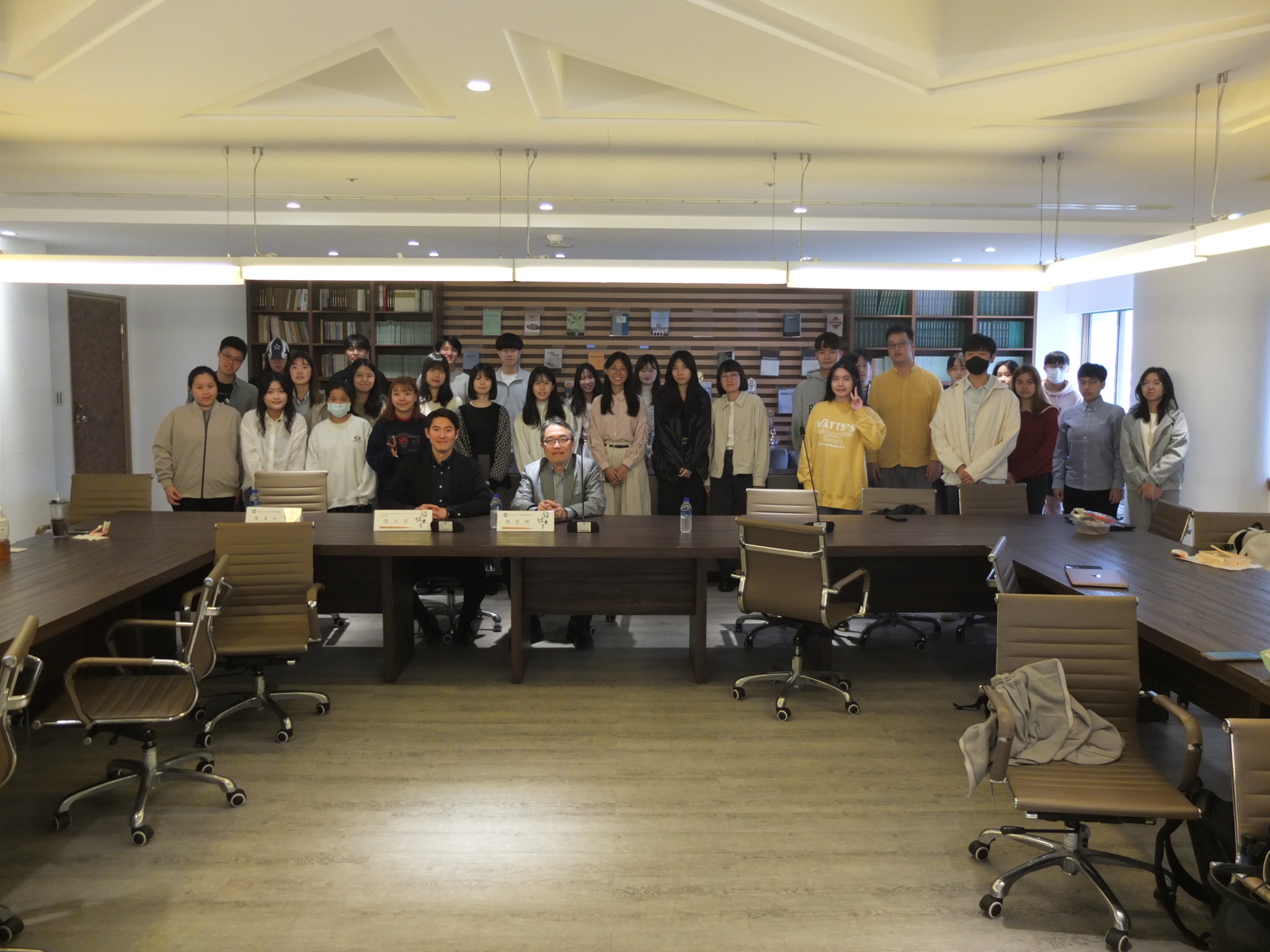On December 5th, National Chengchi University’s College of Law invited Assistant Professor Jian Shichun from Cleveland State University to return to campus and share his experiences of studying and job hunting in the United States. The event attracted many law school students. Professor Jian, who graduated from NCCU’s Master of Laws program in 2012, later pursued his legal education at Stanford University, where he earned a Doctor of Juridical Science (J.S.D.). He has also worked as an assistant prosecutor and currently teaches at Cleveland State University.
Professor Jian began by comparing the two main law degrees in the U.S., LL.M. and J.D. He pointed out that, aside from the differences in study duration, a J.D. degree allows graduates to sit for the bar exam in all U.S. states, and employers generally place higher value on the training associated with a J.D. He encouraged Taiwanese students to consider not only the LL.M. option but also the J.D., noting that the number of Taiwanese students in U.S. law schools has been steadily increasing, and they perform exceptionally well.
When it comes to choosing a law school, Professor Jian suggested that in addition to considering school rankings, students should assess how the school can assist with their future career prospects, such as its location, available job opportunities, and the resources the school invests in international students. He emphasized that scholarships and admission opportunities are "winner-takes-all" and encouraged students to actively showcase their individuality to stand out. He also shared his own experience of obtaining a fee waiver at Stanford University and encouraged students to proactively seek out school resources.
Regarding legal careers in the U.S., Professor Jian explained that because the legal field in the U.S. is diverse, the entry requirements for different positions vary. He advised students to begin exploring their areas of interest while still in school and to plan the knowledge, qualifications, and conditions required for those positions. He emphasized that job postings on campus and networking are key channels for finding job opportunities. He also shared important job-hunting tips, such as understanding the structure of interviews.
In conclusion, Professor Jian encouraged students to step out of their comfort zones, using his own experience of obtaining a teaching position as an example. He assured students that even without a clear precedent, with effort and careful planning, achieving their goals is possible.
During the Q&A session, Professor Jian encouraged students to actively participate in international debate competitions, as it would strengthen their law school applications. In response to questions about citizenship and visa issues, he mentioned that the difficulty of obtaining a visa depends on the nature of the individual’s job.




